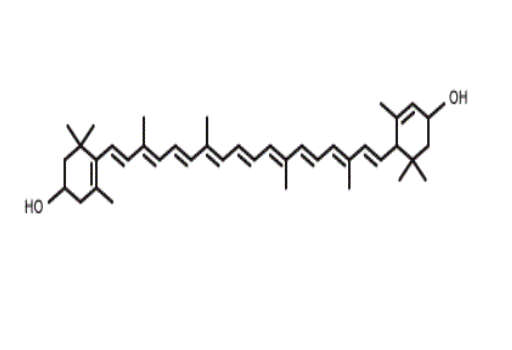Lutein Health Benefits, Properties, and Uses

Properties: Anti-cancer, Antioxidant, Anti-inflammatory, Antiglycemic (Antidiabetic)
What is Lutein?
Lutein is what’s known as a carotenoid vitamin, which is a type of naturally occurring fat-soluble pigment present in plants.1, 2 Lutein is similar to beta-carotene and vitamin A and also acts as an antioxidant.1, 3 Your body can not create lutein on its own and therefore must be consumed through the diet.4 Lutein can be found in a variety of fruits and vegetables, including broccoli, kale, spinach, zucchini, sweet potatoes, carrots, squash, tomatoes, grapes, and kiwi.1, 3 As a fat-soluble vitamin, it’s best to eat with a high-fat meal.1
Lutein Uses and Health Benefits
Lutein has a reputation for helping with a variety of health conditions, including heart disease and type 2 diabetes.1 With its antioxidant properties, it may also help in treating various forms of cancer.1
Lutein’s most prominent health benefit is on the eye, so much that it’s been nicknamed “the eye vitamin.”1 It’s found in high concentrations in the macula, which is located in the eye in the center of the retina.2 It’s believed to act as a light filter to protect the eyes from sun damage.1 This makes it an effective treatment for the following conditions:
- Macular Degeneration - Macular degeneration affects your macula, a small piece of tissue in the eye responsible for your central vision. Macular degeneration can lead to blurry vision and affect daily activities. Studies show that lutein, either alone or combined with other antioxidants, can help reduce vision loss.5
- Cataracts - Cataracts are another type of eye disorder that leads to blurry vision. They are clumps of proteins that form on the lens of the eye, which affects the way light passes through and focuses. Studies show that diets high in lutein can help prevent cataracts.6
- Age-Related Macular Degeneration (ARMD) - Age-related macular degeneration is a type of macular degeneration linked with aging. In fact, it’s the leading cause of vision loss for individuals over the age of 60 in the United States.5 Like with other forms of macular degeneration, lutein can help slow the progression of vision loss in older individuals.
Lutein Side Effects and Precautions
Lutein is considered safe to take, and at this time there are no known lutein side effects.7 However, it may interact with certain herbs and medications. For example, taking lutein with beta-carotene or vitamin E can affect how each herb is absorbed by the body, though this effect is not considered dangerous.1
References
1.https://medlineplus.gov/druginfo/natural/754.html
2.http://www.uofmhealth.org/health-library/hn-2876009
3.http://www.herbs2000.com/h_menu/lutein.htm
4.http://articles.mercola.com/sites/articles/archive/2017/08/07/lutein-eye-brain-health.aspx
5.http://www.umm.edu/health/medical/altmed/condition/macular-degeneration
6.http://www.umm.edu/health/medical/altmed/condition/cataracts
7.http://www.uofmhealth.org/health-library/hn-2876009#hn-2876009-side-effects